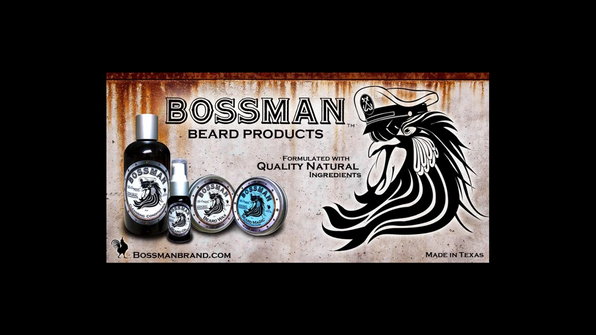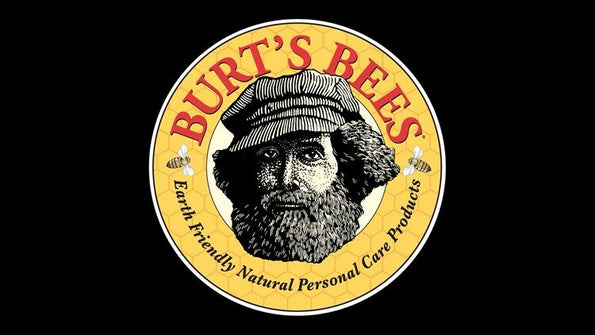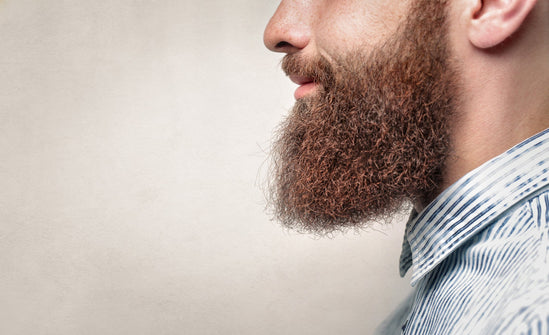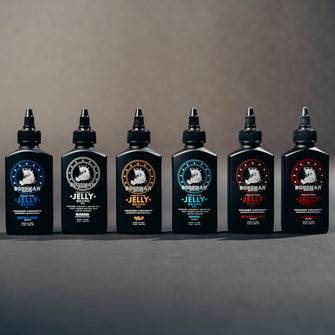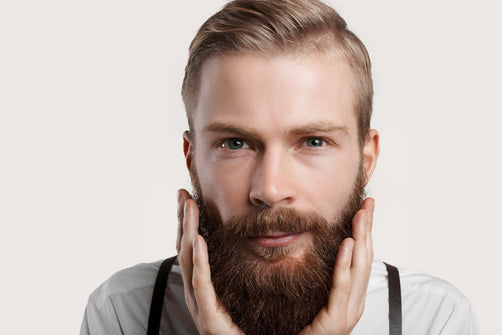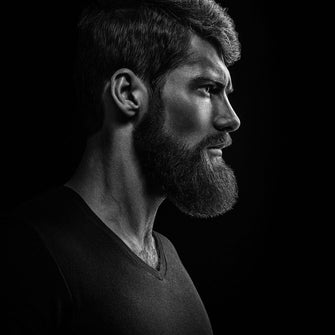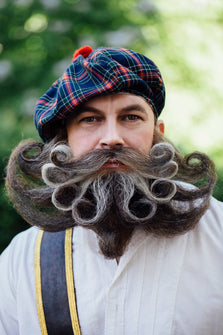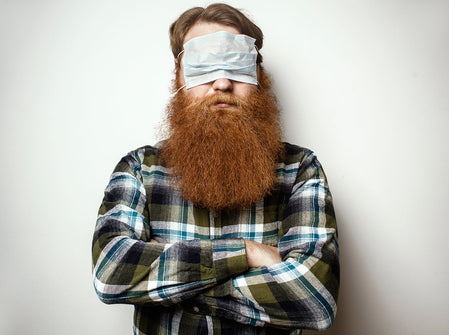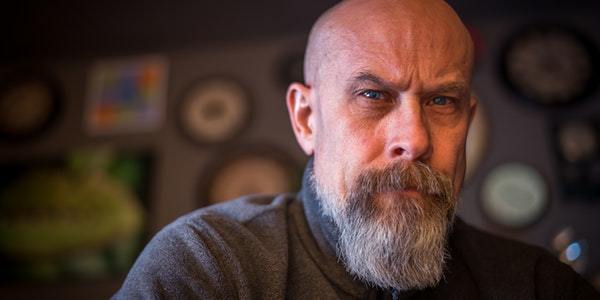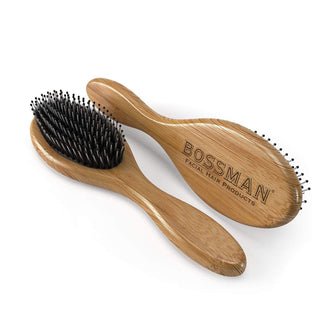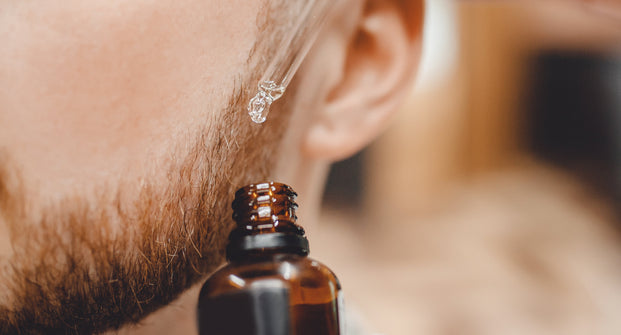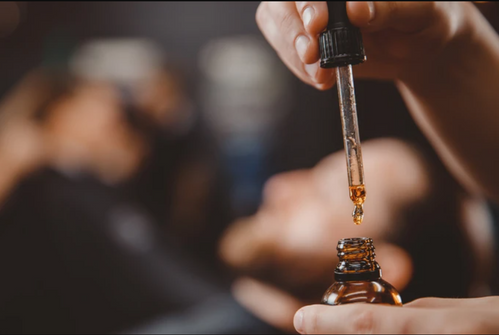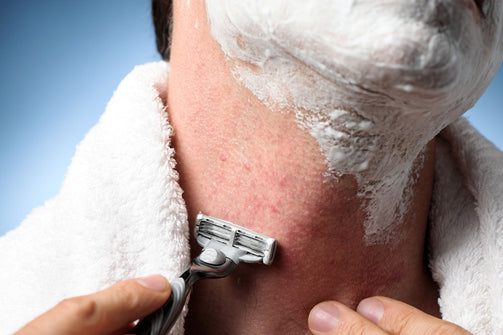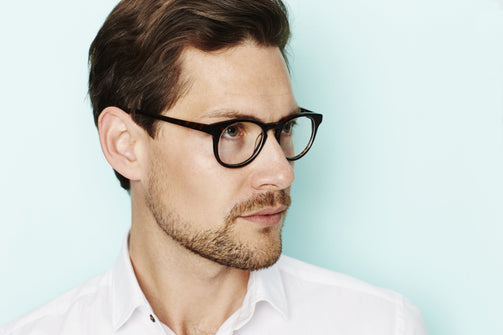The world of facial hair grooming has seen a dramatic rise in popularity, with a burgeoning industry dedicated to supporting men in their quest for the perfect beard. Amidst the vast array of products, one supplement frequently associated with promoting hair growth, including that of beards, is Biotin. A member of the B-vitamin family, Biotin, or Vitamin B7, has stirred up considerable interest in the grooming community. But does Biotin genuinely contribute to beard growth? Let's explore this question.
Understanding Biotin

Biotin is a water-soluble B-vitamin, also known as vitamin H or B7. It plays a vital role in the body's metabolic processes, helping to convert certain nutrients into energy. Additionally, it aids in maintaining the health of our skin, hair, and nails. Biotin deficiency, though rare, can cause symptoms such as hair thinning or discoloration of the skin.
Many people consume biotin through a balanced diet containing eggs, almonds, spinach, sweet potatoes, and more. However, with an increased focus on its benefits for hair growth, biotin supplements have become more widely available.
Biotin and Hair Growth: The Scientific Backdrop
Biotin's role in maintaining hair health is well-documented, but its specific impact on hair growth—particularly beard growth—requires closer inspection. The connection between biotin and hair health is not as direct as one might assume. It does not produce hair growth by itself but instead supports the overall health of hair follicles and skin.

Biotin-Defficient Patients with Alopecia May Help with the Condition
A 2017 review published in the journal Skin Appendage Disorders evaluated the available evidence for supplements in treating non-scarring alopecia, a condition characterized by hair loss. The results suggested that biotin might be useful in cases where individuals were biotin deficient. However, for people with normal biotin levels, there was little evidence to suggest that additional biotin would enhance hair growth.
Biotin May Help with Thinning Scalp Hair
A study in the International Journal for Vitamin and Nutrition Research found that women with thinning hair experienced significant hair growth when taking biotin supplements compared to those who did not. However, it's important to note that these studies primarily focus on scalp hair and not facial hair.
Biotin and Beard Growth
When it comes to beard growth, factors like genetics, age, and overall health play a more substantial role than any single supplement. Some men find it difficult to grow a full beard due to these factors, leading to uneven or patchy growth.
There is no direct scientific evidence to date that directly links biotin supplementation to enhanced beard growth in healthy individuals with adequate biotin levels. This said, the role biotin plays in promoting overall hair health may have indirect benefits for the beard. For instance, it may help improve the quality, texture, and strength of existing beard hair, preventing breakage and making the beard appear fuller and healthier.
If a man is deficient in biotin, supplementation may indeed aid beard growth. But for those with regular biotin levels, additional supplementation may not have a drastic impact.
Read more: Using Beard Thickener to Grow a Better Beard
A Balanced Perspective
The allure of a single solution that promises to revolutionize beard growth can indeed be tempting. With the influx of various supplements and products that advertise the ability to enhance hair growth, it's easy to hope for a quick and straightforward solution to achieving a fuller, healthier beard. However, it's vital to temper these expectations and maintain a balanced perspective.

The Role of Genetics
The process of hair growth, particularly beard growth, is a complex one that is influenced by a host of factors. Primarily, genetics play a considerable role in determining the thickness, length, color, and overall growth pattern of your hair. This factor, unfortunately, is out of one's control, as the genetic makeup you inherit from your parents dictates these aspects.
Diet
In addition to genetics, your diet and overall health also have a significant impact on hair growth patterns. Nutrient-rich foods that contain vital vitamins and minerals, like Vitamin A, B-vitamins, Vitamin C, Vitamin D, iron, and zinc, can contribute to healthier hair growth. On the other hand, a diet lacking these essential nutrients may hinder optimal hair growth.
Overall Health
Aside from genetics and diet, overall health plays a crucial role. Conditions like hormonal imbalances, stress, or underlying illnesses can adversely affect hair growth. Therefore, ensuring you're in good health and addressing any health concerns is integral to promoting healthy hair growth.
Related: Things Not to Do When Trying to Grow a Beard
Opt for Lifestyle Changes
Given these factors, a lifestyle that emphasizes a well-rounded diet, regular physical activity, proper hydration, and adequate sleep can often provide a more holistic approach to supporting hair and beard growth. Regular exercise, for instance, improves blood circulation, which is essential for transporting nutrients to the hair follicles. Adequate hydration keeps your hair hydrated from within, preventing dryness and brittleness. A good night's sleep, on the other hand, aids in the body's repair and rejuvenation processes, which include hair growth.
Read more on How to Grow a Thicker Beard
Are Supplements Necessary?
Despite the importance of these lifestyle factors, the consideration of adding supplements like biotin to your routine can still be a point of interest. If you're contemplating the use of a biotin supplement, it's crucial to consult with a healthcare provider first. While biotin is generally recognized as safe for consumption, excessive supplementation can occasionally have side effects.

One potential downside is that it can interfere with the results of various lab tests, including thyroid function tests and troponin tests, which could lead to falsely elevated or decreased results. This could result in misdiagnosis or inappropriate treatment. Another potential side effect is the risk of skin rashes. While this is a less common reaction, it's worth noting when considering biotin supplementation.
While it's tempting to seek quick and easy solutions to enhance beard growth, it's essential to approach this with a balanced and holistic perspective. Supplements like biotin could potentially aid in improving hair health, but it should not be viewed as a standalone solution. It's crucial to consider all the significant factors influencing hair growth and to maintain a healthy lifestyle, making changes as necessary under the guidance of a healthcare provider.
What is the Suggested Biotin Dosage for Enhancing Facial Hair Growth?
For individuals aged 19 and above, the U.S. Institute of Medicine advises a daily biotin consumption of 30 mcg as sufficient. However, for supplementary intake, experts often suggest a daily dose ranging from 2 to 5 mcg. It's worth noting that the Food and Drug Administration (FDA) has not established any specific guidelines concerning biotin dosage, leading to variable recommendations from different product makers.
Before incorporating any new vitamin or dietary supplements into your regimen, it's crucial to consult a healthcare professional. This is particularly important if you're dealing with existing health issues or are on any prescribed medications. A vitamin is more than just a simple nutrient; it can significantly influence your body's overall functioning and may lead to adverse effects if incorrectly used. While biotin deficiencies are uncommon, if you suspect you may be lacking this nutrient, your physician can perform tests and suggest a suitable supplement and its correct dosage.
Suggested Product: High Quality Beard Supplement

How Long Does It Take for Biotin to Work on Beard?
Individuals looking to enhance their facial hair should consider a 90-day course of biotin supplements for observable effects. The improvements are often modest and should not be considered a miracle remedy for sparse, incomplete beards or hair thinning. Incorporate these supplements into a broader regimen for managing beard and hair health.
Wrapping Up...
While biotin is a vital nutrient that supports our skin, hair, and nails' health, its role in boosting beard growth is not as straightforward. Current scientific evidence suggests that unless you're biotin deficient, additional biotin might not significantly enhance your beard growth. However, focusing on overall health and lifestyle can yield better results, helping you achieve the glorious beard you've been aiming for. As always, it's essential to consult with a healthcare provider before starting any new supplement regimen.
Related:
Does Biotin Help Beard Growth? Unraveling the Science Behind Biotin an
Does Biotin Help Beard Growth? Unraveling the Science Behind Biotin and Beard Growth
Understanding Biotin
Biotin, also known as vitamin H, is a water-soluble vitamin that's vital for healthy skin, hair, and nails. It's necessary for the proper functioning of many enzymes in the body and is a key player in the synthesis of keratin, the main structural protein in hair. So when it comes to facial hair growth, is biotin the answer?
While there is not enough scientific proof that biotin can affect beard growth outside of strengthening your keratin infrastructure, several studies suggest that biotin supplements can improve hair thickness in people. Therefore, biotin may be able to help you grow a beard. In this article, we'll take a closer look at the role of biotin in promoting facial hair growth, the benefits of biotin supplements, and whether or not they can really make your beard grow thicker and faster.
The Role in Promoting Facial Hair Growth
The hair on our faces, just like the hair on our heads, is made up of keratin. This is a type of protein that's essential for hair growth, strength, and durability. Biotin plays a crucial role in the production of this protein, as well as in supporting the overall health of our hair follicles. For this reason, it's often recommended as a supplement for those looking to promote facial hair growth.
However, it's important to note that there isn't a huge amount of scientific research to back up these claims. Studies have shown that biotin supplements can indeed help to support overall hair health, but there are no specific studies that directly examine the effect of biotin on facial hair growth. That being said, there is anecdotal evidence from many people who claim that biotin has helped them grow thicker, healthier beards.
Biotin May Stimulate the Production of Keratin
So, if you're considering taking biotin supplements to help boost your beard growth, what should you expect? First and foremost, you can expect your hair, nails, and skin to benefit from the increased biotin intake. Many people report significantly improved hair health after taking biotin supplements, which may in turn help to support beard growth.
Additionally, biotin may stimulate the production of keratin, which could potentially improve the thickness and fullness of your beard. There's no guarantee that taking biotin will result in a dramatic increase in facial hair growth, but the potential benefits can't be ignored.
Biotin May Affect Beard Growth
Wwhile there is not enough scientific proof that biotin can drastically affect beard growth, it can certainly help to support overall hair health. This, in turn, may lead to healthier, thicker facial hair growth for some people. If you're struggling with your own beard growth, it may be worth giving biotin supplements a try to see if they can help support your hair goals.
However, it's important to remember that not everyone will experience the same results when it comes to biotin and facial hair growth. Factors like genetics, hormone levels, and overall health will all play a role in determining how much facial hair you can grow, and how quickly it grows. That being said, there's no harm in trying biotin supplements to see if they can support your beard growth journey.
Biotin May Support Overall Hair Health
Ultimately, while there's no definitive answer as to whether or not biotin can specifically improve beard growth, there is certainly enough evidence to suggest that it can support overall hair health. After all, a healthy beard starts at the root, and biotin plays a crucial role in maintaining those roots. So if you're looking to give your facial hair growth a boost, it might be time to consider adding some biotin supplements to your daily routine.
Remember, it's always best to consult with a healthcare professional before starting any new supplement regimen, especially if you have any pre-existing health conditions or concerns. With the right guidance and support, biotin just might be the key to unlocking your beard's full potential. Happy growing!
Biotin Supplements and Beard Growth: Is There a Connection?
Many men who desire a fuller, thicker beard often turn to biotin supplements to aid in their facial hair growth. But is there a real connection between biotin supplements and beard growth? In this article, we'll dive into the science behind biotin and its potential effects on facial hair growth.
First, let's understand what biotin is. Biotin, also known as vitamin H, is a water-soluble vitamin that plays an essential role in the production of protein in our bodies. These proteins, specifically keratin, are crucial for healthy hair, skin, and nails. Some men might think that taking biotin supplements can help with beard growth, as it's believed to promote hair growth and prevent hair loss.
But does biotin actually help beard growth? The answer isn't entirely clear-cut. There is some evidence that suggests biotin can play a role in promoting hair growth, but that doesn't necessarily mean it will directly lead to a fuller beard. Biotin has been linked to improved hair health in general, which might contribute to better beard growth, but it's essential to remember that other factors like genetics and overall health will also play a significant role in facial hair growth.
So, if you're considering biotin supplements for beard growth, keep in mind that it might not be a magical solution, but it can potentially aid in promoting healthier, stronger hair. Some men may notice an improvement in their beard growth after taking biotin supplements, while others might not see any noticeable change. This can be due to the fact that everyone's hair growth patterns are different and not solely reliant on biotin levels.
While we can't definitively say that biotin supplements will guarantee a fuller, thicker beard, there's a chance that they could help improve your overall hair health. If you're struggling with significant hair loss or thinning beard, it's worth speaking to a healthcare professional who can give you tailored advice and recommendations for treatment options.
Another factor to consider when exploring biotin supplements and beard growth is making sure you're getting enough protein in your diet. Since biotin plays a critical role in protein production, it's essential to ensure you're consuming enough protein to support hair growth. In addition, a well-balanced diet rich in vitamins and minerals will contribute to overall health and hair health. So, along with considering supplementation with biotin, it's crucial to maintain a healthy, balanced diet.
In conclusion, there may be a connection between biotin supplements and beard growth, but it's essential to have realistic expectations about their potential impact on facial hair growth. Biotin can help support general hair health, but other factors, such as genetics and overall health, will also play a significant role in determining how your beard grows. Before rushing to order biotin supplements, it's worth evaluating your overall lifestyle and diet to make sure you're giving your beard the best chance for healthy growth.
This article has been medically reviewed and aims to give you an understanding of the relationship between biotin supplements and beard growth. As always, it's important to consult with a healthcare professional before beginning any supplementation or making significant changes to your diet. Remember that when it comes to beard growth, there are no one-size-fits-all solutions. It's essential to consider multiple factors, such as genetics, health, and lifestyle, in order to tailor a beard growth plan suited for your specific needs.
Optimizing Biotin Intake for Hair Growth and Beard Health
When it comes to beard growth and health, many individuals seek ways to optimize their facial hair. Biotin, a B-vitamin, has been associated with hair growth and improving hair health. This article will delve into whether biotin can help your beard growth and discuss the optimal ways to increase your biotin intake in order to promote hair growth and beard health.
First, it is necessary to understand what biotin is and how it affects hair growth. Biotin, also known as vitamin H, plays an essential role in the body's production of proteins, specifically keratin. Keratin is the primary protein found in hair, skin, and nails, and a deficiency in biotin can lead to hair loss and other issues. Incorporating biotin in one's diet has been linked to improved hair health, leading to the question of whether biotin supplements can help beard growth.
Several studies have suggested a connection between biotin intake and hair growth. However, little research specifically focuses on beard growth. Nevertheless, it is presumed that the role biotin plays in hair growth can also be applied to facial hair. This means that biotin may promote beard growth, although the exact effect may vary from person to person.
So now the question arises: How does one optimize biotin intake for hair growth and beard health? The daily recommended intake of biotin for adults ranges from 30 to 100 micrograms (mcg). To put this in perspective, a single egg contains approximately 25 mcg of biotin, making it an excellent dietary source of biotin. Other foods rich in biotin include nuts, seeds, salmon, and dairy products. Incorporating these foods into your diet can help maintain sufficient biotin levels, contributing to improved hair health and potentially beard growth.
In addition to a balanced diet, there are biotin supplements available on the market. Biotin supplements can be especially beneficial for individuals experiencing hair loss due to biotin deficiency. However, it is essential to note that not all hair loss is caused by biotin deficiency. Therefore, before jumping to order biotin supplements, it is crucial to identify the underlying cause of hair loss and address it accordingly.
If you decide to take biotin supplements, it is recommended to start with a low dose (approximately 2,500 mcg) and gradually increase if necessary. A higher dosage may be required based on individual needs and levels of deficiency. However, excessive biotin intake can result in minor side effects, such as acne and digestive issues. As with any supplement, it is essential to consult a healthcare professional before starting a biotin supplement regimen.
Another way to incorporate biotin into your beard care routine is by using beard oil. Many beard oils on the market contain ingredients such as castor oil, which is known for its potential effect on hair growth, and some even include biotin. Regularly applying beard oil infused with biotin can provide your beard with essential nutrients, promoting healthier and potentially faster-growing facial hair.
Optimizing biotin intake through a balanced diet or supplements can contribute to hair growth and improved hair health. While there is no solid scientific evidence specifically linking biotin to beard growth, it is plausible that biotin could promote facial hair growth. Prioritizing biotin consumption, whether it be through diet, supplements, or even beard oil, can be beneficial for individuals looking to improve their overall hair and beard health.
A Balanced Diet to Promote Beard Growth: Are Supplements Necessary?
Achieving great beard growth starts with maintaining good health, and a well-rounded diet plays a significant role in ensuring your facial hair will grow properly. Many individuals wonder if supplements, like biotin, are necessary to promote beard growth and improve their beard's health. Can biotin help beard growth? In this article, we'll explore the importance of a balanced diet for growing beards and if supplements are essential to achieve the optimum menu for beard growth.
Biotin, also known as vitamin B7 or vitamin H, is an essential water-soluble vitamin that plays a crucial part in numerous body functions, including skin health and hair growth. Biotin does this by aiding the body in breaking down proteins and turning them into the building blocks that make up our hair, skin, and nails. Studies conducted on biotin's effects on hair growth have shown some promising results, reporting that supplementing with biotin does, in fact, contribute to healthier and possibly faster hair growth. So, does biotin help beard growth? It's important to note that while biotin can have positive effects on hair growth, this doesn't necessarily translate directly to beard growth.
A balanced diet to promote beard growth should include a variety of nutrients, with protein intake being a top priority. Protein is essential for growing a healthy beard, as it provides the body with the necessary amino acids required to support hair growth. If you find that your beard growth is sluggish or you're struggling to maintain a full, healthy beard, examining your protein intake might be a good place to start. Of course, other factors can affect beard growth, like age, genetics, and overall health, so it's essential to consider all aspects of your lifestyle.
So, do vitamin supplements help beard growth? While a vitamin-rich diet can promote healthy beard growth, exploring the available products, like biotin supplements and beard growth kits, can offer additional support, especially if your beard is growing slower than you'd expect. However, results from these products may vary by individual, and it's essential to remember that there's no guarantee that supplementing with biotin – or any other nutrient – will produce expected beard growth results. Your best course of action is to keep a close eye on your diet, making sure to include a variety of essential vitamins and minerals, as well as protein, for a balanced menu that promotes great beard growth.
So, are supplements necessary for beard growth? The answer is that for most individuals, a well-rounded diet should provide all of the nutrients your body needs for healthy beard growth. In some cases – for example, if you're deficient in biotin or another essential nutrient – supplementing can be helpful. However, this should only be done after consulting with a healthcare professional to ensure you're addressing an actual deficiency, rather than simply adding something to your regimen without a clear reason.
In conclusion, while biotin and other vitamin supplements can be beneficial to your overall health and hair growth, they may not have a direct and immediate impact on your beard growth. Instead, focus on maintaining a balanced diet and adjusting your protein intake to ensure an optimal environment for your beard to grow. By doing so, you'll be providing your body with what it needs to grow a full, healthy beard without needing to rely on additional supplements. Always consult with your doctor before adding supplements to your diet and pay close attention to your body's unique needs when it comes to beard growth and overall health.
biotin deficiency
beard growth supplements
water soluble vitamin
biotin for beard growth
how much biotin
fatty acids
biotin for beard
nail health
biotin supplement
patchy beard
nail supplements
beard hair
biotin rich foods
keratin infrastructure
thinning hair
supplement form
fatty acid production
essential vitamin
hair oil
b vitamins
biotin deficiency
beard growth supplements
biotin for beard growth
how much biotin
biotin for beard
nail health
biotin supplement
biotin rich foods
b vitamins
egg yolks
poor diet
benefits of biotin
vitamin
body
water soluble
vitamins
medical conditions
supplement
benefits
foods
excess biotin
human survival
beard thickness
biotin deficiencies
hair shaft
brittle nails
vitamin b levels
oral supplement
cell energy production
egg yolks
promote growth
grow hair
poor diet
keratin production
biotin deficiency
beard growth supplements
water soluble vitamin
biotin for beard growth
how much biotin
fatty acids
biotin for beard
nail health
biotin supplement
patchy beard
nail supplements
beard hair
biotin rich foods
biotin deficiency
beard growth supplements
biotin for beard growth
how much biotin
biotin for beard
nail health
biotin supplement
biotin rich foods
b vitamins
egg yolks
poor diet
benefits of biotin
vitamin
body
water soluble
vitamins
medical conditions
supplement
benefits
foods
keratin infrastructure
thinning hair
supplement form
fatty acid production
essential vitamin
hair oil
b vitamins
excess biotin
human survival
beard thickness
biotin deficiencies
hair shaft
brittle nails
vitamin b levels
oral supplement
cell energy production
egg yolks
promote growth
grow hair
poor diet
keratin production
biotin deficiency
beard growth supplements
water soluble vitamin
biotin for beard growth
how much biotin
fatty acids
biotin for beard
nail health
biotin supplement
patchy beard
nail supplements
beard hair
biotin rich foods
keratin infrastructure
thinning hair
supplement form
fatty acid production
essential vitamin
hair oil
b vitamins
excess biotin
human survival
beard thickness
biotin deficiencies
hair shaft
brittle nails
vitamin b levels
oral supplement
cell energy production
egg yolks
promote growth
grow hair
poor diet
keratin production
biotin deficiency
beard growth supplements
biotin for beard growth
how much biotin
biotin for beard
nail health
biotin supplement
biotin rich foods
b vitamins
egg yolks
poor diet
benefits of biotin
vitamin
body
water soluble
vitamins
medical conditions
supplement
benefits
foods
carbohydrate metabolism
other vitamins
prescription medications
biotin deficiency
beard growth supplements
biotin for beard growth
how much biotin
biotin for beard
nail health
biotin supplement
biotin rich foods
b vitamins
egg yolks
poor diet
benefits of biotin
vitamin
body
water soluble
vitamins
medical conditions
supplement
benefits
foods
health benefits
extra biotin
benefits of biotin
hair products
kidney problems
biotin daily
happen overnight
cooked eggs
vitamin
daily diet
adverse effects
biotinidase deficiency
right diet
sufficient amounts
whole grains
body
recommended dosage
water soluble
milk products
vitamins
more tips
medical conditions
supplement
benefits
foods
carbohydrate metabolism
other vitamins
prescription medications
health benefits
extra biotin
benefits of biotin
hair products
kidney problems
biotin daily
happen overnight
cooked eggs
vitamin
daily diet
adverse effects
biotinidase deficiency
right diet
sufficient amounts
whole grains
body
recommended dosage
water soluble
milk products
vitamins
more tips
medical conditions
supplement
benefits
foods
carbohydrate metabolism
other vitamins
prescription medications
health benefits
extra biotin
benefits of biotin
hair products
kidney problems
biotin daily
happen overnight
cooked eggs
vitamin
daily diet
adverse effects
biotinidase deficiency
right diet
sufficient amounts
whole grains
body
recommended dosage
water soluble
milk products
vitamins
more tips
medical conditions
supplement
benefits
foods





